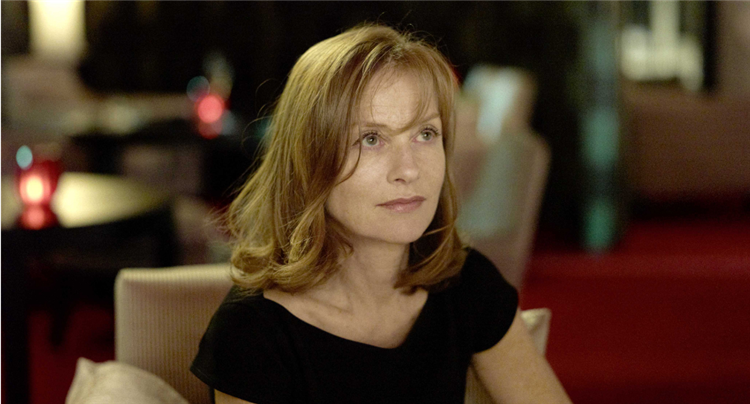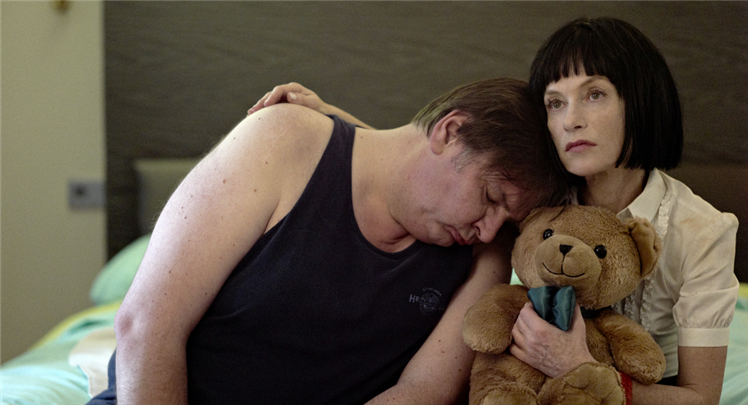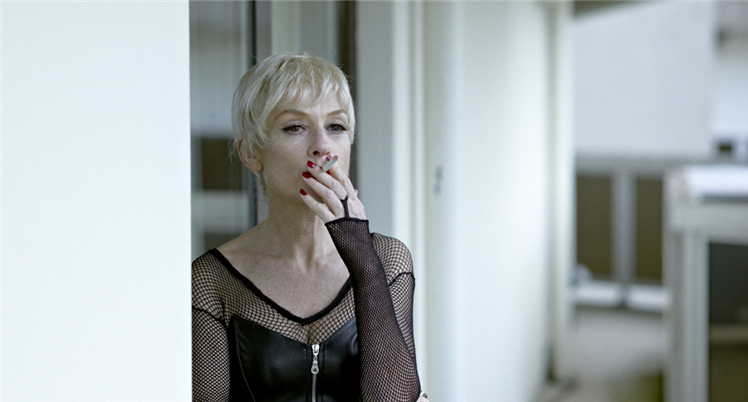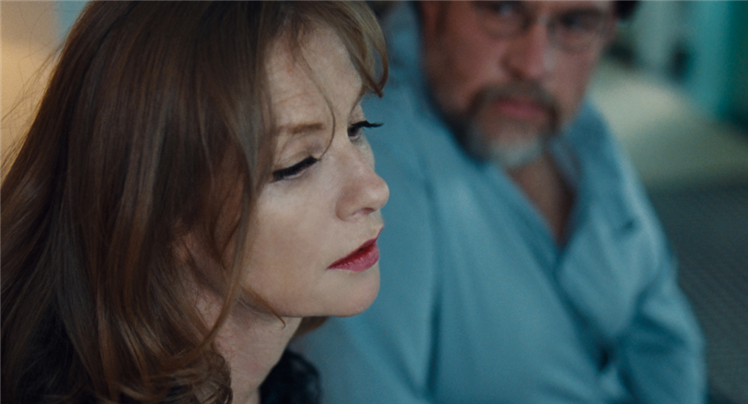9-18-11
“Nonsense” Makes More Sense than Ever in Jeanne Labrune’s Special Treatment
By Diane Sippl

Today the rules of the game are those of the market; you have to be marketable at all costs, even if it means being a fraud. To sell oneself, learning to sell oneself, to sell one’s image, to become a brand and comply with what others supposedly wish for, these are the rules, the laws that govern. All this is exposed as an imperious necessity which one ought not disregard and which is often presented as fate. We are not far from prostitution.
Jeanne Labrune Writer-Director of Special Treatment
Sans queue ni tête, the original title of Special Treatment, can be translated literally as “senseless or disconnected,” or idiomatically as something one can make neither “head nor tail” of, and this is precisely the irony upon which Jeanne Labrune plays so exceedingly well in her ninth feature film. The “nonsense” has to do not only with the film’s structure and its characters, but also with its images and its themes. Viewers might presume that Labrune is telling an old story even if what they feel is predictable seems increasingly obtuse, but this auteur has something refreshingly important to say, and she has her own way of saying it. Those who feel they have had enough of “the world’s oldest profession” on the screen may not have noticed that the film is really about one of its newest: the game of marketing one’s image.
So when the first third of the film offers a trio of scenarios — more precisely, role-play sessions featuring an innocent schoolgirl, an S/M dominatrix, and a disobedient wife, all performed by a prostitute, Alice Bergerac (the formidable Isabelle Huppert) — viewers easily recall scenes from Buñuel’s Belle de jour, for example, or dozens of other world cinema classics, and likewise begin to construct their own films for the screen before them, featuring eroticism, voyeurism, seamy settings, crime and violence, all enlisted in a gripping story arc of suspense, consequence, and conflict resolution. Moreover, once Special Treatment also introduces a psychoanalyst named Xavier Demestre (Bouli Lanners), a portly incarnation of Freud himself, we expect to see Alice diagnosed in one way or another, or at least entangled in a love affair of sorts, as a “hooker with a heart of gold” with the man who would put her “on the couch.”
But Jeanne Labrune, for all her wit and style, is onto something else, which is also something less cynical than Godard’s 1980 Every Man for Himself in which Huppert delivered plenty of sordid satire in one of her earliest roles in the “sex” profession. Special Treatment is closer to the more recent Revanche in form, theme, and purpose. As with Godard’s central pair, a filmmaker and a call girl, social and economic relations are at issue in Labrune’s film; but as with Götz Spielmann’s key couple, an ex-con and a sex traffic casualty, money beckons as the means to freedom and the promised life. And if Spielmann points to the understanding and the hard work (as opposed to the money) that a new life would require, Labrune shows us all the pains such characters endure to reach that point of discovery. In the meantime, it’s not so much prostitution and therapy that take a beating in Special Treatment, but the pecuniary practices with which they addict practitioners and clients alike. Not only that, but once again like Revanche in its crisscrossing of characters’ paths, Special Treatment does a good job of questioning the everyday damage we do to ourselves in the face of what is kind, generous, ingenuous, and therefore within the realm of an ethical, nourishing way to be.

Using someone and disposing of this person “after use” is not a practice limited to prostitution. It is an ever-expanding practice in the labor world in this period of liberalism in crisis where only what produces money is considered as having any “value” and where gratuity and generosity are “undervalued”; where a person has no value for himself or herself and where complexes or hang-ups should be done away with, which can also mean to do away with anything complex, to no longer have any scruples, to go simply and brutally to what counts: money.
Jeanne Labrune Writer-Director of Special Treatment
Much as “special treatment” would seem to refer to the care of the prostitute for her clients, (and in theory, the care of the analyst for his patients), the camera doesn't eroticize Alice’s exchanges. We see the sex act either in its naked truth, both its awkward moments and unflattering images, or not at all. The first encounter, a spontaneous one, occurs entirely in the next room, off-camera. We get only (yet pleasurably) Alice’s barbed banter after the fact, as she ushers the newbie out the door for being a poor loser. A regular client later follows her into that same room for another outcome entirely. Yes, the closed door sways slightly ajar, but it doesn’t allow so much as a peephole of a view. With the camera remaining in the living room, the suddenly alarming “back-stage” voices, as if in a shocking radio drama, carry the impact. The imaginary scene is more revealing than what what we would have seen. Once outside the room, Alice quivers from the violence. A subsequent scene when she bathes is elegantly photographed through the frosted glass of the shower stall, rendering only an impressionistic view of her body, inviting reflection on the act of cleansing, which for the therapist Xavier serves a very different, unconscious purpose every time he compulsively washes his hands. “Keep scrubbing. You’ll tear your skin off,” his wife taunts him. “You’re a coward and a hypocrite.”
As obsessed with guilt as he is with psychiatry, and half-believing a charismatic transvestite patient who calls Xavier a sex addict, this analyst lives for the accumulation of objects d’art (each, as it turns out, created by a hysteric or paranoid artist). His wife practices psychiatry in the adjoining suite, and she finds it more satisfying than she does him. She doesn’t like what he’s become: “cynical out of conformance, weak out of indifference.” Following the protocol of the profession, he meets his clients for parsed, timed interludes in his private office. They lie down face up while he perches behind, out of sight, impassive and taciturn, clocking the session and collecting the cash. No contact, no expression, no feelings. The patients twitch, cry, flirt, sing: one, cross-dressed with a pearl necklace and earrings framing his black stubble of mustache, delivers an exquisite contralto diversion, a song of a shepherdess who should head home before the storm.
It loosely alludes to Alice, who becomes increasingly conscious of both the risk and the tedium of her work. While she gives a client extra time to complete his task, she rejects the tip he in turn gives her: “If you’re having trouble finishing with me, the fantasy may be gone. I’ll introduce you to a younger colleague.” Celebrating her birthday with that colleague in a café, she notices an elderly woman who reminds her of her granny. Alice sings along with an amateur-level performance of Piaf’s “Non, je ne regrette rien” by a woman her age as the camera’s frame includes a portrait of the chanteuse in her youth.

Patient: (He turns around and looks directly at the analyst,
seated behind him.) Remember last session?
I didn’t want to live… But today, when I saw you… you looked so sad
that… It did me good. I felt less lonely. Well, anyway. None of this makes any
sense. It’s a cock —
Analyst: Cock?
Patient: All this is a cock and bull story.
Analyst: What do you mean, ‘all this’?
Patient: Life. You, me. As it concerns me, this is no discovery. But you — maybe you’re some cock and bull story after all.
Analyst: After all what?
Patient: I don’t know. Ah — our time is up. I forgot my wallet.
Analyst: Not to worry. You can pay next time.
Patient: I’m not coming back.
Analyst: Fine, then (walking
him to the door).
Patient: No, don’t bother. I know the way out.
Dialogue from Special Treatment
Labrune’s film posits nothing against psychiatry as a healing profession; in fact there are patients who are able to detach themselves from it, find closure to their issues, and even to take up the perspective of the analyst. And midway through the film we do come upon a practitioner who lends another connotation, perhaps the most literal one, to the film’s English title, “Special Treatment.” What he offers might be above and beyond (or in psychiatry’s definition of professionalism, against) the call of “duty” — or is it? Pierre Cassagne (Richard Debuisne) works in a hospital for the mentally ill, patients who can’t speak properly or control their movements, who fall into epileptic fits, who suffer anxieties that cannot be remedied by talking therapy. By chance he meets Xavier, who in turn connects him with Alice, and here is where the trajectory of the film begins to shift.
If the story moves in any one direction at all, it might be in a circle (although one that spirals to another plane), drawn by the characters’ attraction to and ultimate use of objects. For Alice, it’s first a cut-glass fruit platter she beguiles from a new prospect, and then an elaborate chandelier, one with rich hues of amber reflecting her hair as she casts her gaze upon it while she herself reflects — first, on which client will bring her its price (she names him “the chandelier”) but soon enough upon herself as an empty suit of armor whose brain, nonetheless, is still working. By contrast, another curious object is auctioned off, arbitrarily swapped, and then circulated among the characters with no regard for money or even artistic or symbolic value. A large antique wooden angel becomes a gift more benignly portentous than in any story by Chekhov or De Maupassant (or Bresson’s L’argent, for that matter). Delivering greetings of sheer appreciation, affection, and gratitude, the angel finds its best use of all: it ends up in a psychiatric hospital, cherished as a doll.

Since the beginning… my films tell a story about overcoming something. How can one try to give life meaning, how can one overcome the bitter traits of human nature, how can one remain lucid, make it through despair and achieve a certain lightness? What should we do to defeat the stupidity and violence inside of us, which are lurking like a beast that we constantly need to tame, that we need to shake off, untangle within ourselves and out of ourselves? My films are all about this struggle.
Jeanne Labrune Writer-Director of Special Treatment
Humor abounds in Special Treatment, from the hunk of raw meat Alice dumps into a “dog’s” bowl to the snorting pig in the shadows of Xavier’s sex club haunt where “nuns” and “brides” and “crucified” women drive him into the woods, a setting resonant with that of a friendlier woodsy walk he took while waiting for a rendez-vous with Alice. When he’s finally “up” for it (so he thinks), he fumbles for a pose on his hotel-room couch in anticipation of her arrival; he shifts among the various reclining positions of a mental patient, a solicitor, and a “john.” Uncomfortable with all of them, he simply loosens his belt a notch on his belly.
Labrune is a wry and clever bard who clearly relishes writing (she has recently completed a novel, The Obscure), and for all her film’s darkly lit mise-en-scène and luminous close-ups of Huppert, both bringing Special Treatment its elegant beauty, it’s the screenplay that delivers the warmth. Co-author Richard Debuisne, who plays the role of the effective and admirable psychiatrist Pierre Cassagne with astonishing aplomb, shows his depth of field earned in the course of some fifty feature films on which he worked as assistant director for Jean Luc Godard, Maurice Pialat, Serge Gainsbourg, and Catherine Breillat, for example. If Special Treatment is in any part a love story, it’s one of another sort: of how one can learn to love the singular, authentic self that one could be. Owing to each “special” vision and voice — to writer/director Labrune and writer/actor Debuisne as well as the beloved French comedian Bouli Lanners and the unsurpassable Isabelle Huppert (with four films in production at this moment) — Special Treatment is a uniquely humane work of art.
Special Treatment (Sans queue ni tête)
Director: Jeanne Labrune; Producer: Jani Thiltges; Screenplay: Jeanne Labrune, Richard Debuisne; Cinematographer: Virginie Saint-Martin; Editor: Ania Lüdcke; Sound: Carlo Thoss; Set Design: Régine Constant; Costumes: Claire Fraïssé; Original Music: André Mergenthaler.
Cast: Isabelle Huppert, Bouli Lanners, Richard Debuisne, Sabila Moussadek, Valérie Dréville, Mathieu Carriére, Didier Bezace, Frédéric Longbois, Christophe Odent, Jean-François Wolff, Gilles Cohen, Frédéric Pierrot.
Color, 35mm, 95 min. In French with English subtitles.
Photo Credits: Patrick Muller (the first three) and Virginie Saint Martin (the last one).
Distributed by First Run Features.